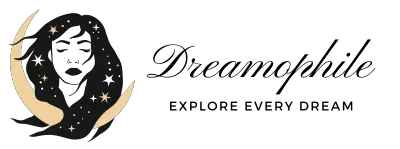Introduction:
Dreaming of hair often symbolizes personal identity, strength, and freedom. It can reflect our attitudes towards self-image, sexuality, and empowerment, serving as a window into our subconscious to reveal how we perceive ourselves and wish to be perceived by others. Delving into dreams about hair can uncover deep-seated beliefs about beauty, health, and personal power, offering insights into our innermost selves and the ways in which we navigate the world around us.
What Does the Dream About Crying Signify?
Dreams about crying typically signify a release of pent-up emotions, suggesting a need for emotional healing or expression in waking life.
Symbolism and Insight
The primary symbols associated with dreaming of hair include vitality, personal strength, and seduction. Hair in dreams can also symbolize thoughts and knowledge, reflecting the state of one’s mind or ideas. Long hair might represent freedom and unchecked energy, while short hair could symbolize a need for control or simplicity. Losing hair in a dream might indicate fears of losing strength, aging, or changes in one’s self-image, while abundant hair could symbolize health, vitality, and personal power.
4 Common Dream Scenarios:
| Dream Scenario | Interpretation |
|---|---|
| Dreaming of luxurious, healthy hair | This scenario often symbolizes vitality, confidence, and a strong sense of self, reflecting positive self-image and personal power. |
| Dreaming of losing hair | This can indicate anxiety about aging, loss of strength, or diminished attractiveness, symbolizing fears related to self-image and identity. |
| Dreaming of cutting hair | Investigate the desire for change, control, or shedding past identities, suggesting a transformation in how you perceive yourself or wish to be seen by others. |
| Dreaming of hair in unusual places | This scenario may delve into feelings of embarrassment, the discovery of new aspects of oneself, or dealing with situations that are out of the norm, reflecting on personal boundaries and self-expression. |
Cultural Contexts
Culture 1: Native American Cultures
In many Native American tribes, hair is deeply symbolic, often representing strength, wisdom, and spiritual connections. Dreaming of hair in these cultures might be interpreted as a sign of spiritual growth, personal power, or a deep connection to one’s heritage and the earth. Long hair might be seen as an accumulation of wisdom and spiritual energy while cutting hair could symbolize mourning or significant life changes.
Culture 2: Sikhism
In Sikhism, hair, or ‘Kesh’, is one of the Five Ks, representing the virtues of simplicity, humility, and the acceptance of God’s will. Dreaming of hair within this cultural and spiritual framework might symbolize devotion, integrity, and the strength of one’s faith and convictions. It could also reflect the dreamer’s thoughts on identity, personal commitment to spiritual principles, and respect for the natural order of life.
Culture 3: Victorian Era European Culture
During the Victorian era, hair was laden with romantic and sentimental value, often kept as keepsakes or used in mourning jewelry to remember lost loved ones. Dreaming of hair in this historical context could symbolize deep emotional connections, mourning, or longing for a past relationship. It might also reflect on the complexities of social appearances and the private versus public personas.
Culture 4: Japanese Culture
In traditional Japanese culture, hair has various symbolic meanings, including social status, beauty, and personal honor. Samurai, for instance, wore their hair in a distinct style that signified their status and honor. Dreaming of hair in this cultural context might reflect concerns about honor, social perceptions, or personal identity. It could also symbolize the internal struggle between personal desires and societal expectations.
Personal Factors to Consider for Dreaming of Hair Meaning:
Personal experiences and the current emotional or life situation of the dreamer play a crucial role in the interpretation of dreams about hair. Aspects such as recent changes in appearance, concerns about aging, self-esteem issues, or significant life transitions can influence the dream’s symbolism. Experts recommend examining the emotional context of the dream, the dreamer’s feelings towards their hair in waking life, and any recent events that might be impacting their self-image or sense of identity.
Psychological Perspectives
Carl Jung
Carl Jung might view dreaming of hair as a symbol of the persona or the outward identity that one presents to the world. He could interpret changes in hair within dreams as reflections of transformations in the dreamer’s psyche, representing shifts in how they perceive themselves or wish to be perceived by others.
Sigmund Freud
Freud might consider hair in dreams as a symbol of libido and potency, given its historical association with sensuality and seduction. He could interpret dreams of hair loss as fears of castration or loss of virility, while abundant hair might be seen as a symbol of vitality and erotic energy.
“The interpretation of dreams is the royal road to a knowledge of the unconscious activities of the mind.” – Sigmund Freud
Conclusion:
Dreams about hair weave together a rich tapestry of personal, cultural, and psychological meanings, reflecting the dreamer’s inner world, societal influences, and universal human experiences. By exploring the multifaceted symbols of hair in dreams, individuals can gain insights into their identity, emotions, and the complex interplay between their inner selves and the external world.
FAQs
Dreaming about cutting your hair can symbolize a desire for change, a break from the past, or taking control over an aspect of your life. It might reflect personal transformation or the shedding of old identities.
Dreams about hair loss often reflect anxieties about aging, loss of attractiveness, or fears related to one’s self-esteem and identity. It’s more a reflection of internal fears than a bad omen.
While dreams can sometimes reflect concerns about physical health, dreaming of hair more commonly symbolizes psychological and emotional states related to identity, strength, and personal power.

